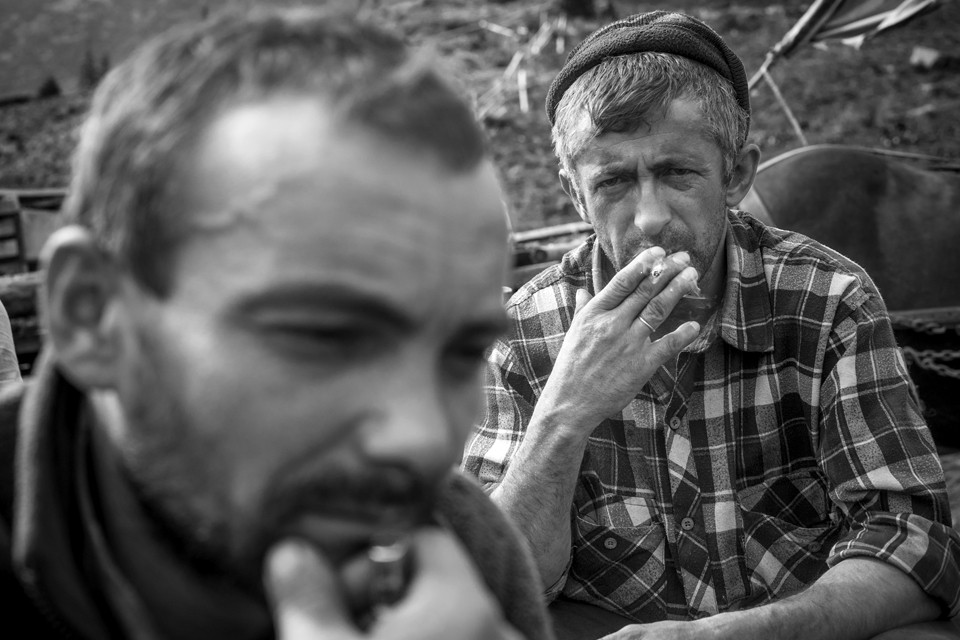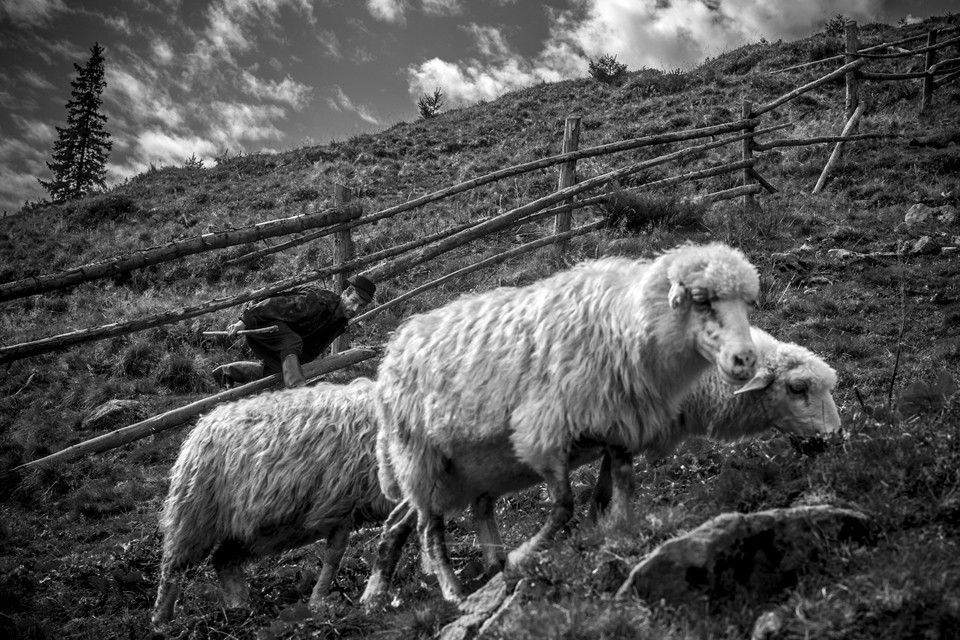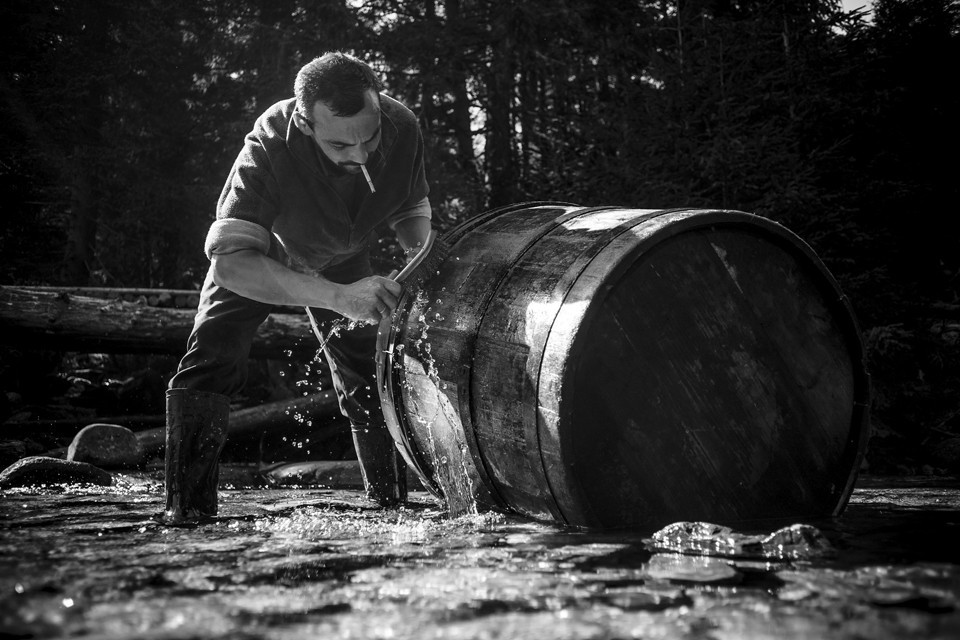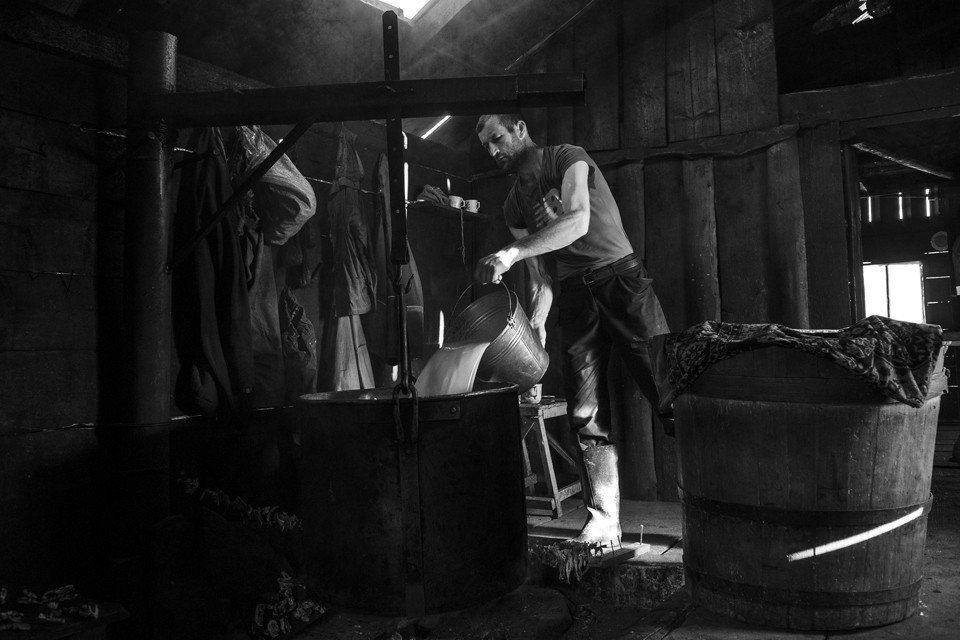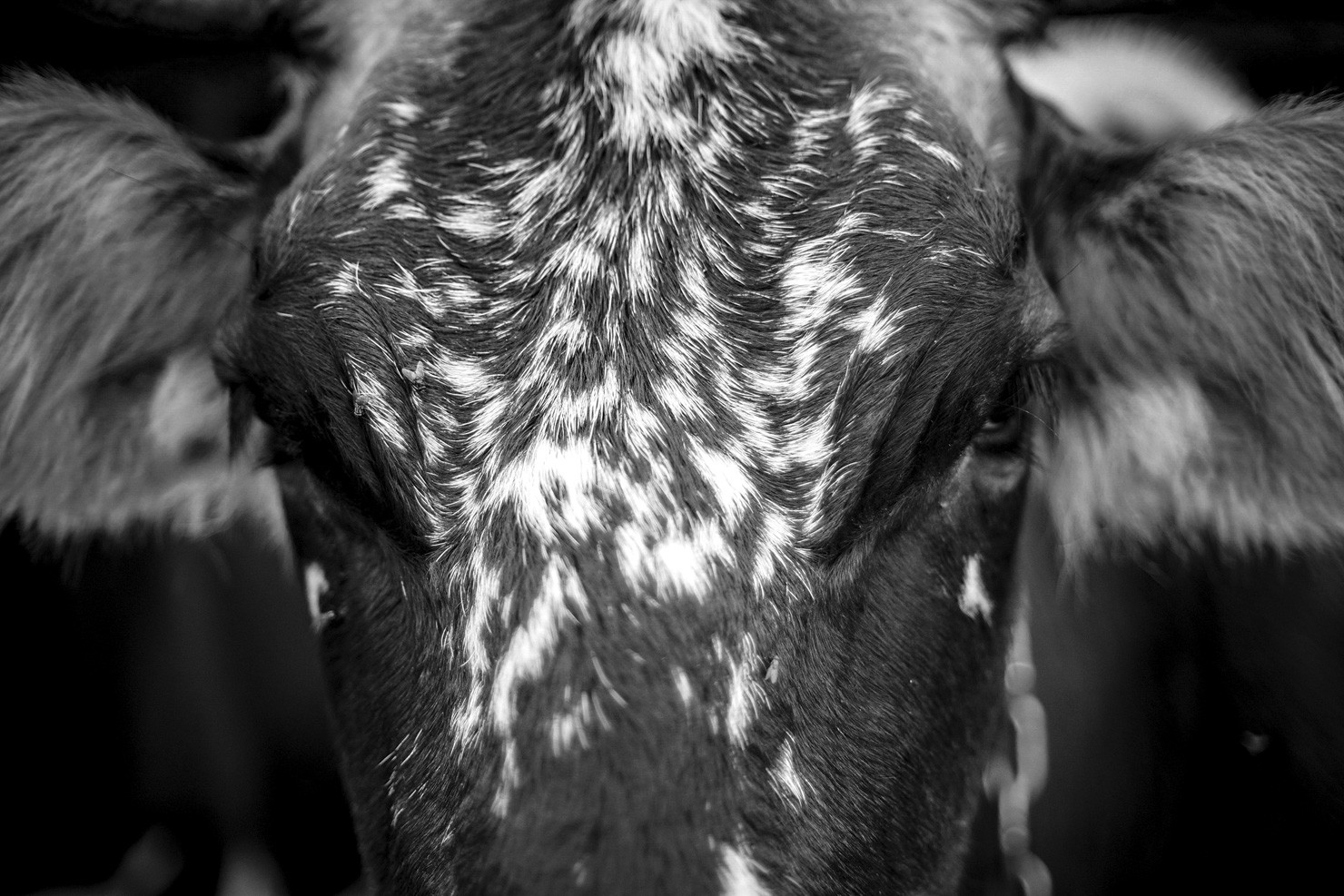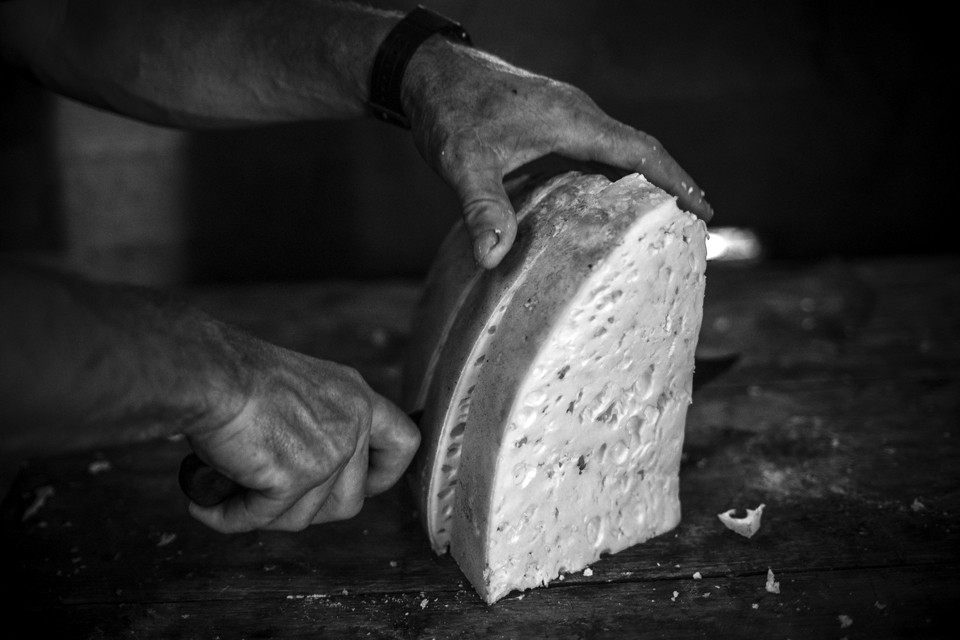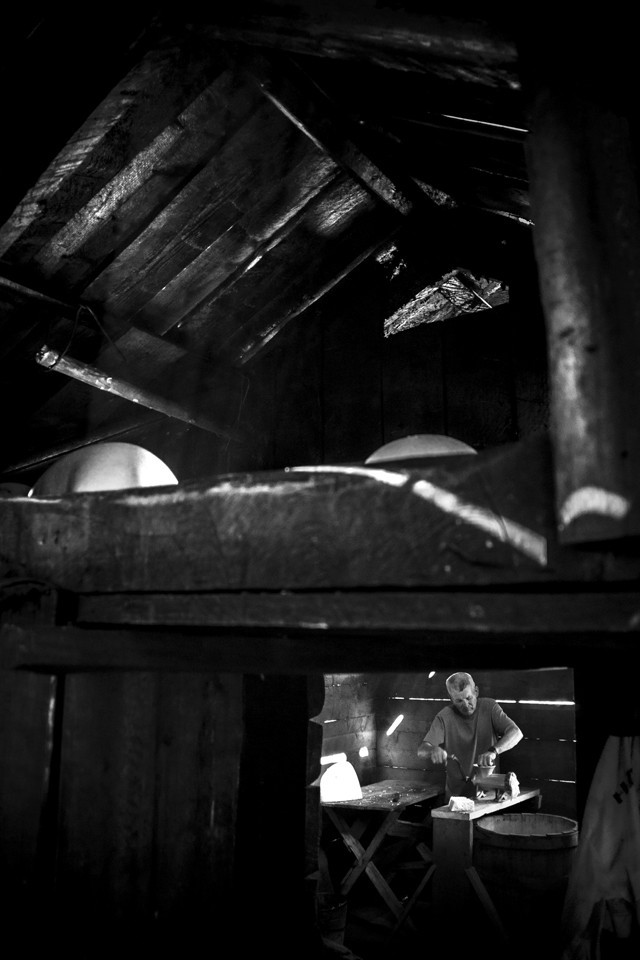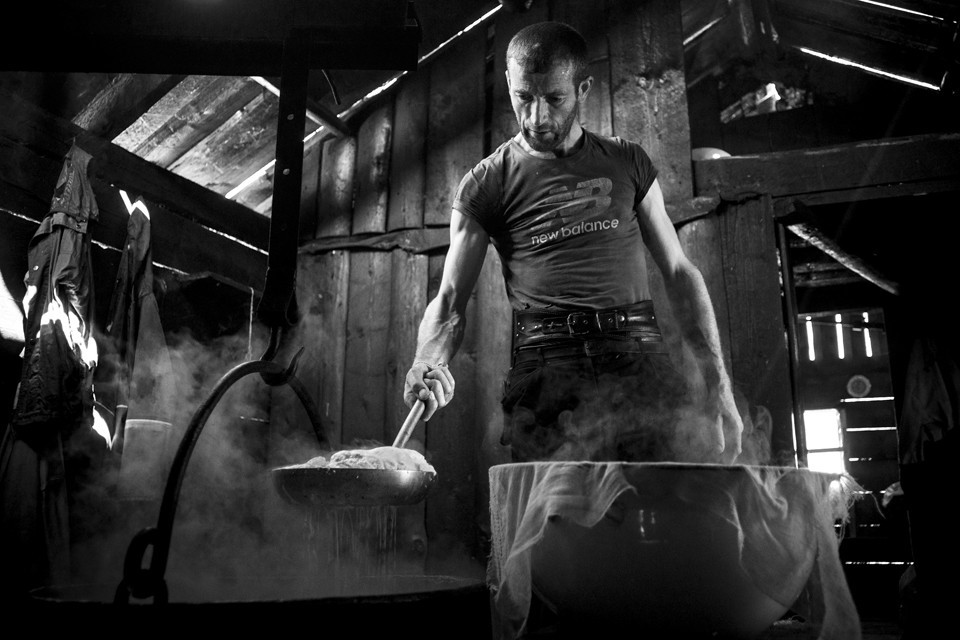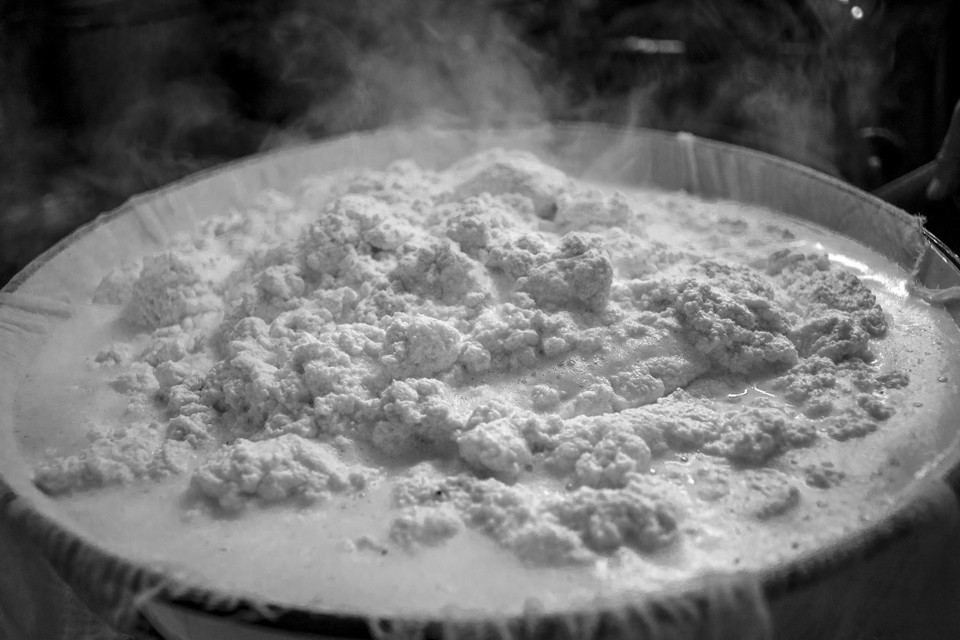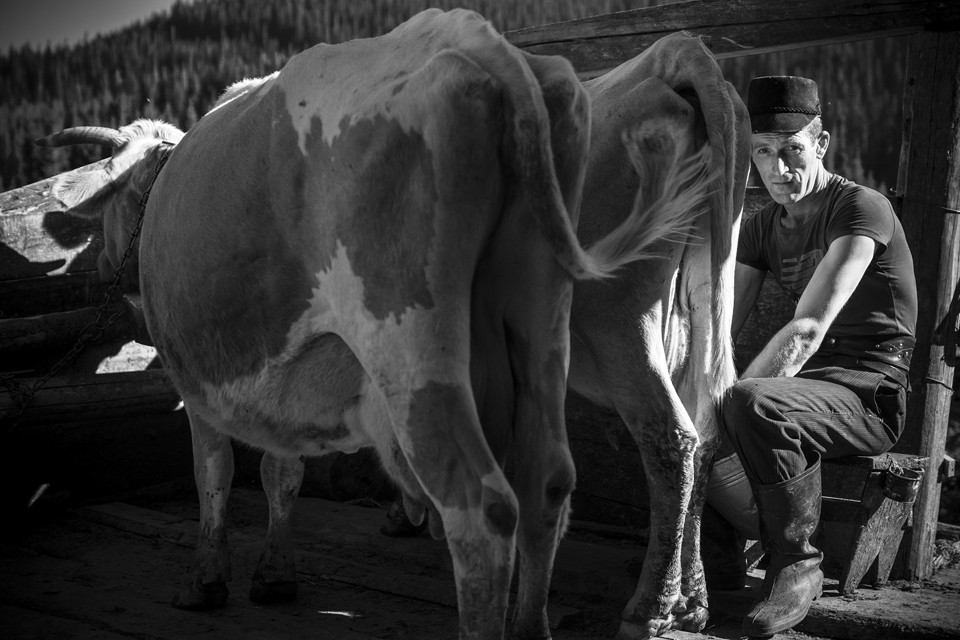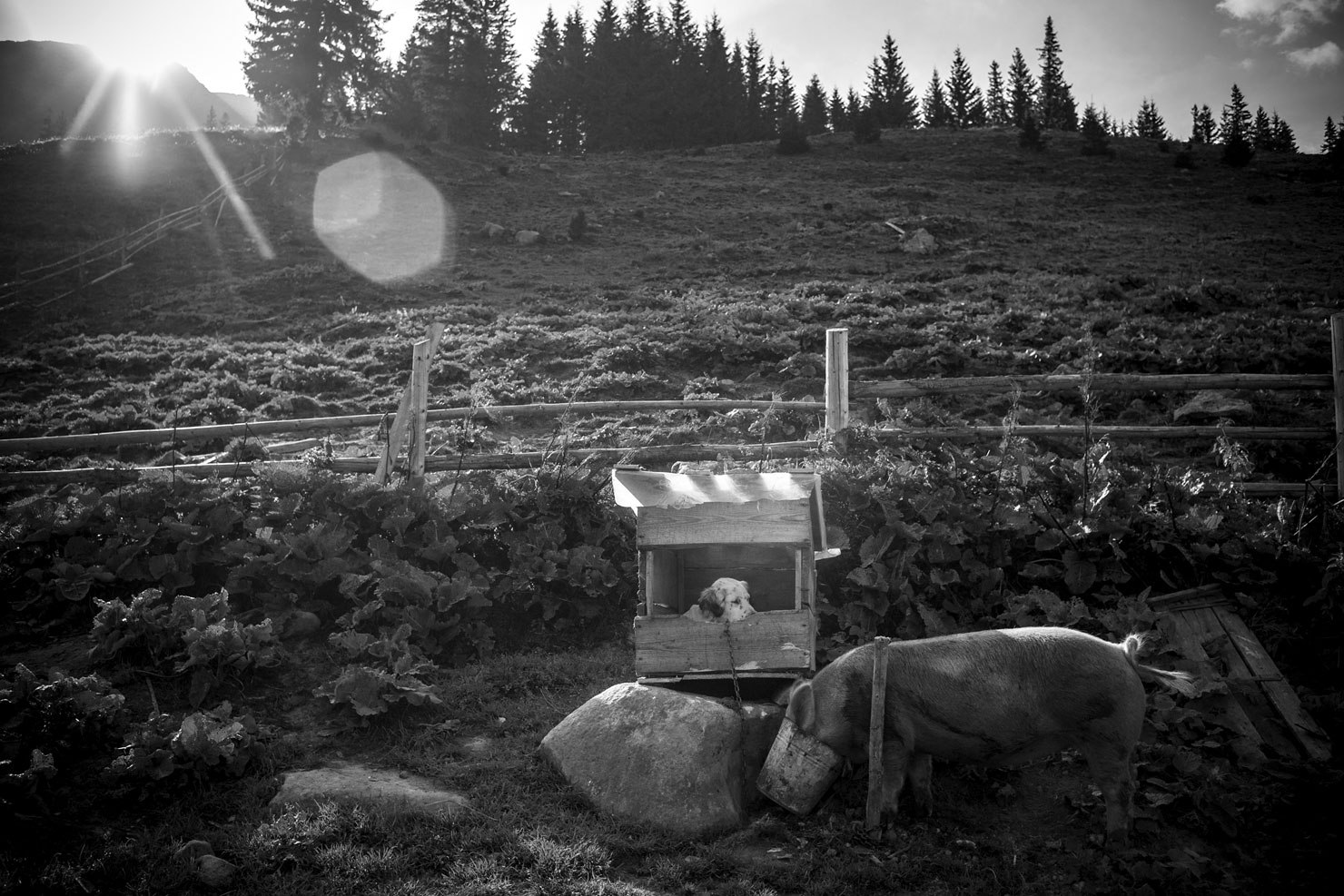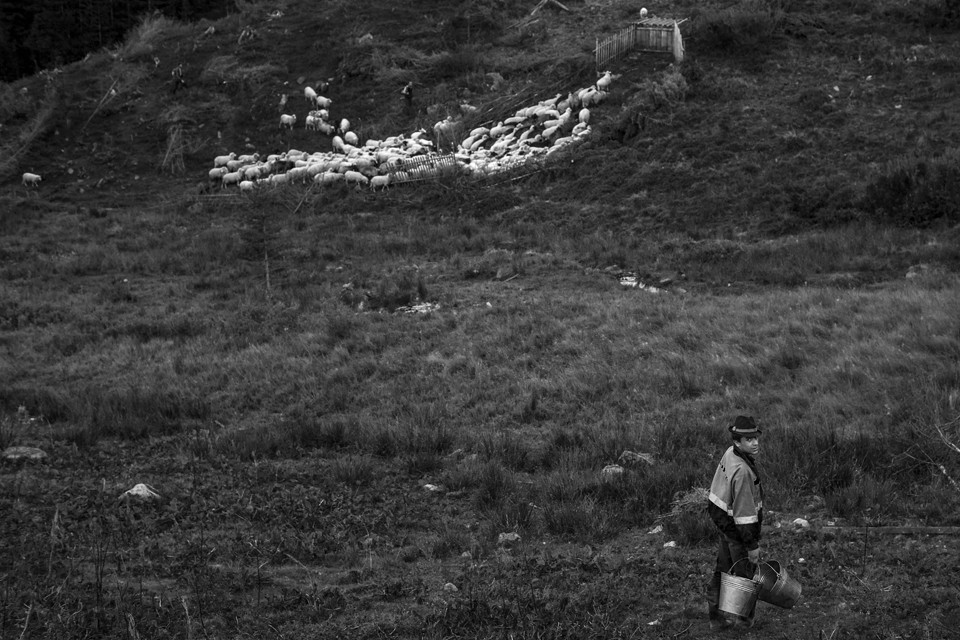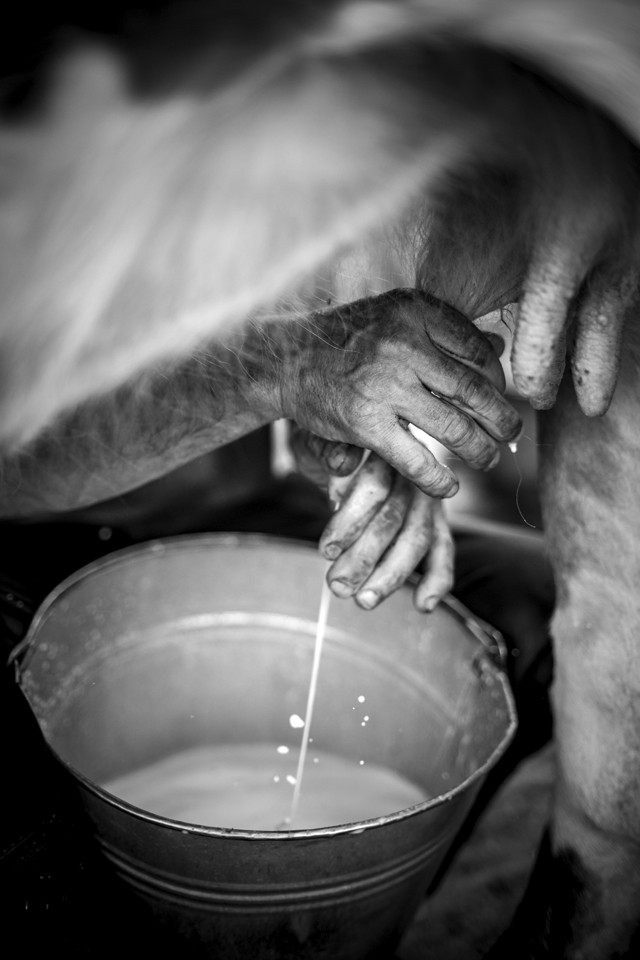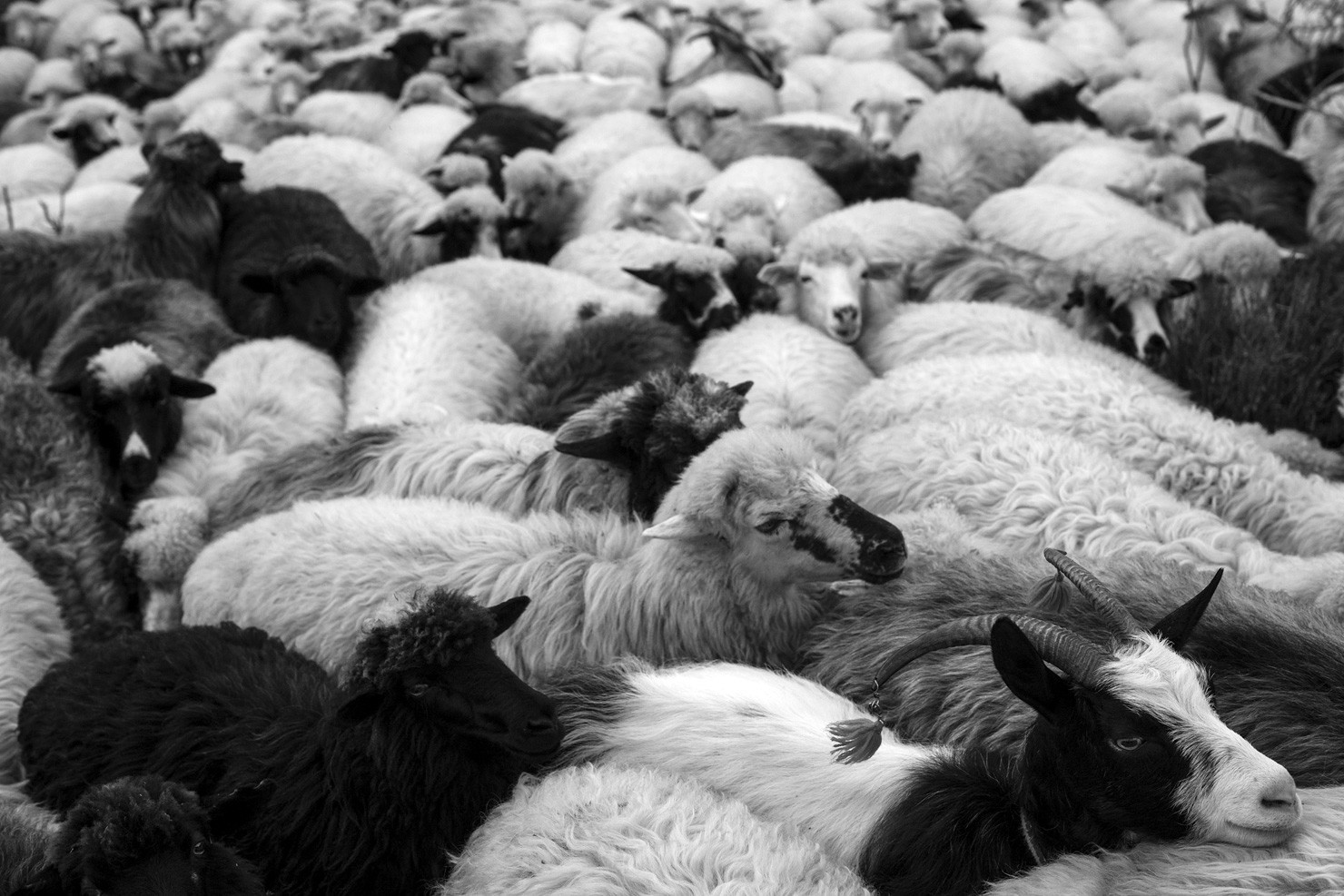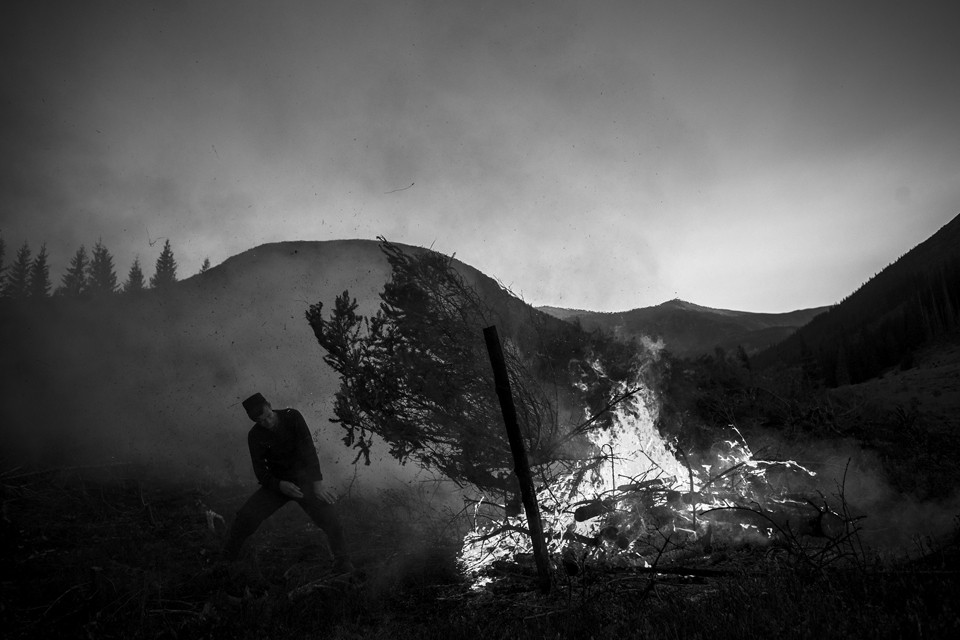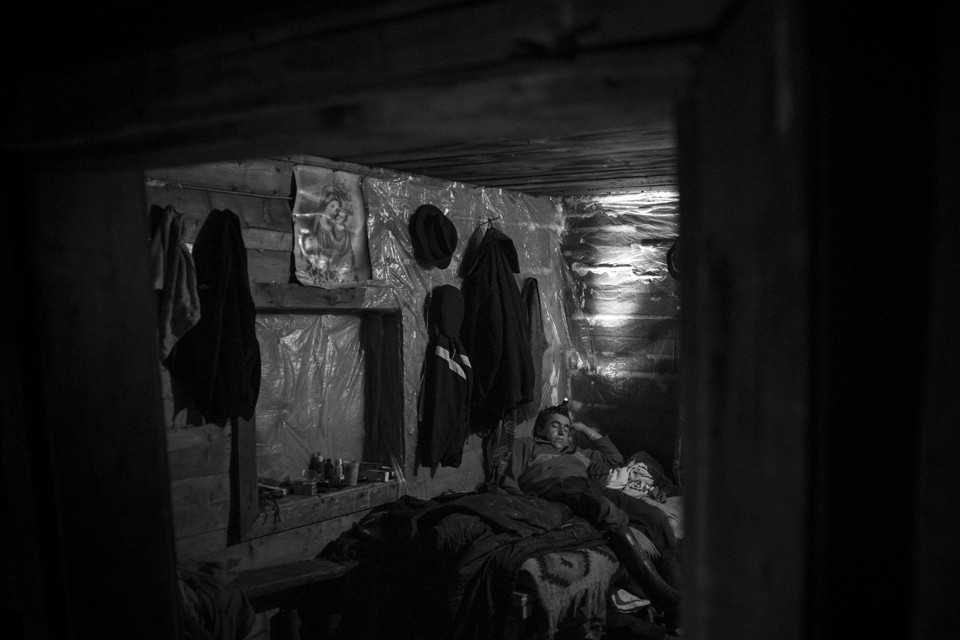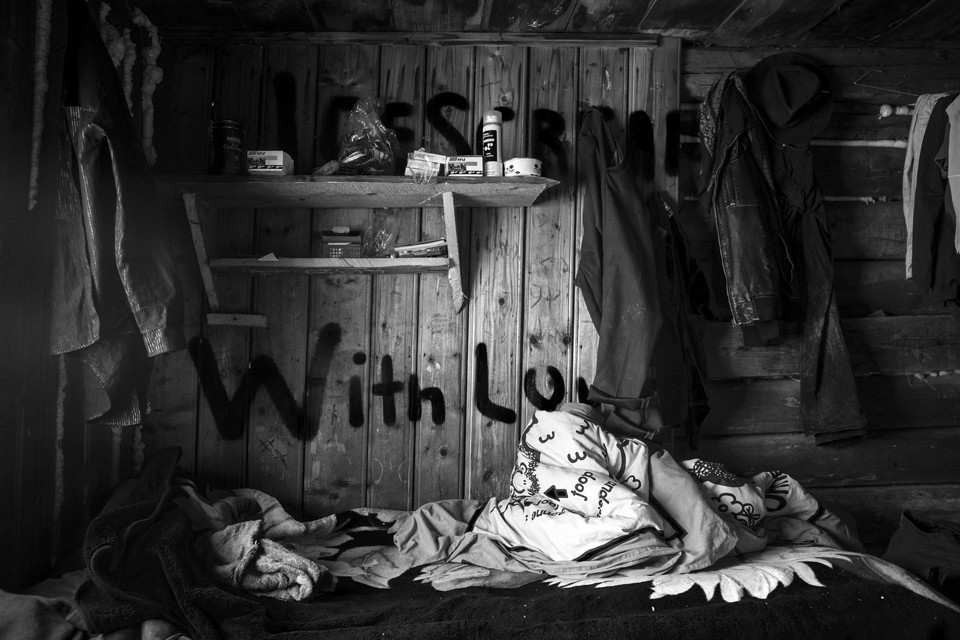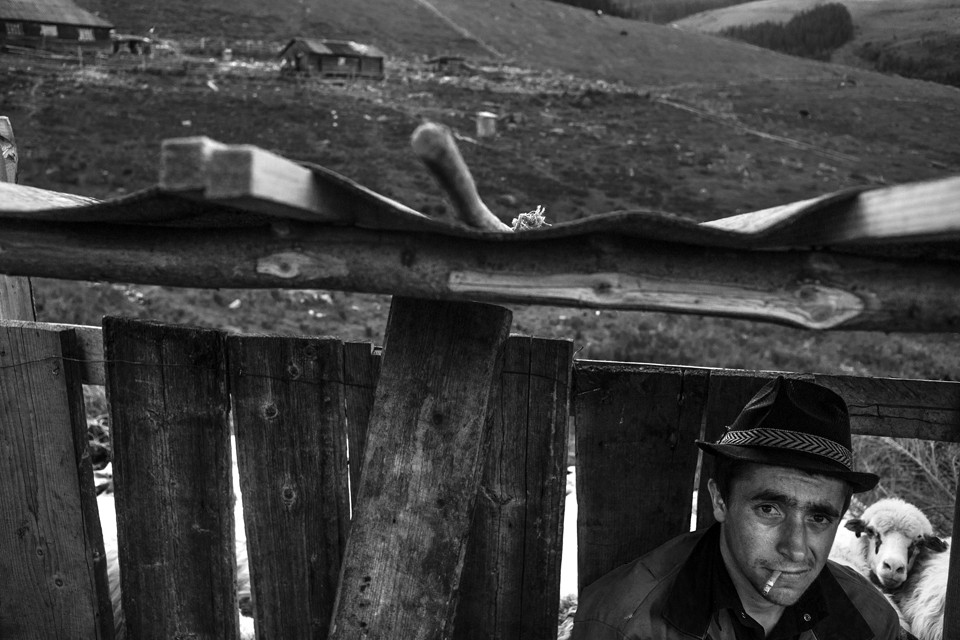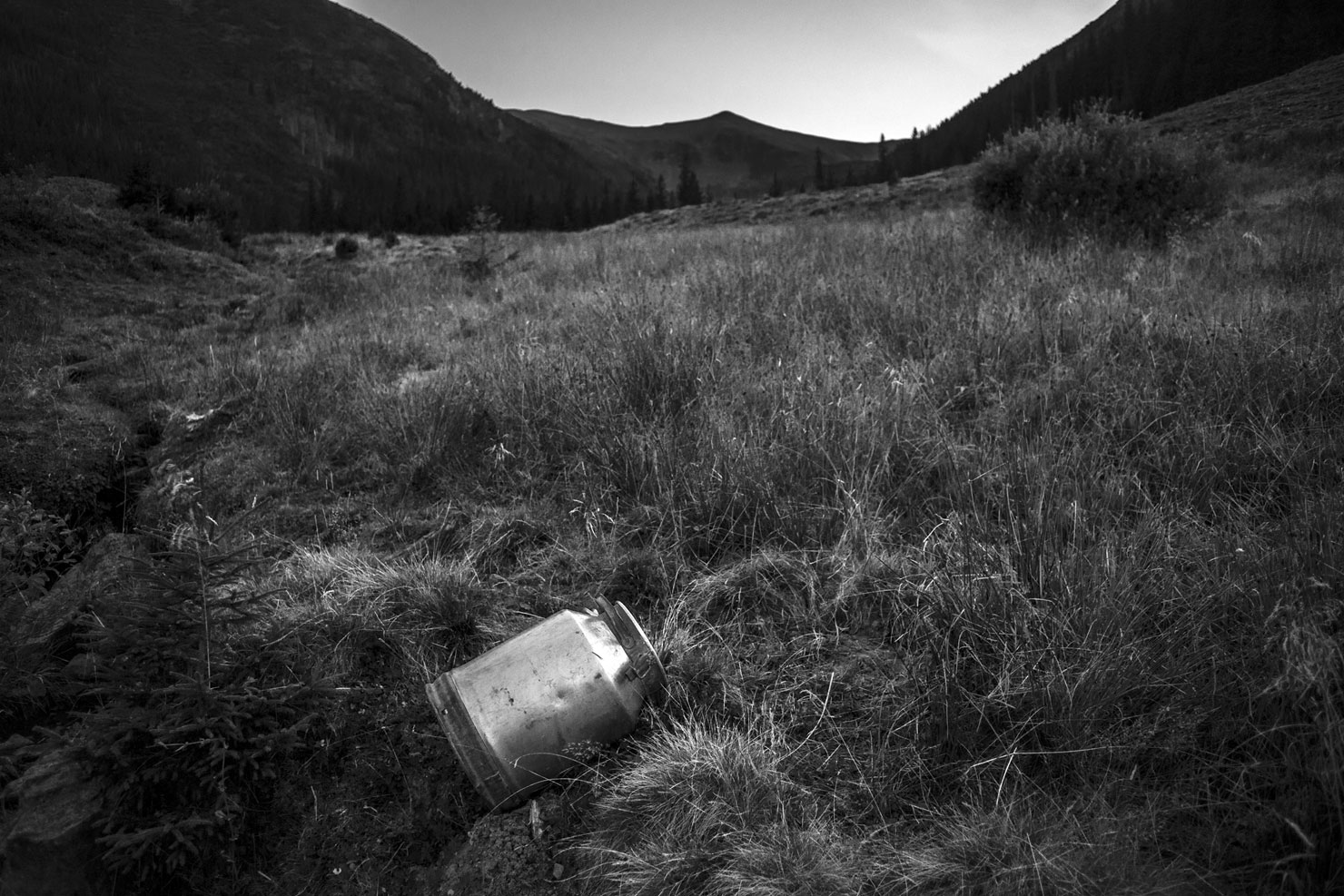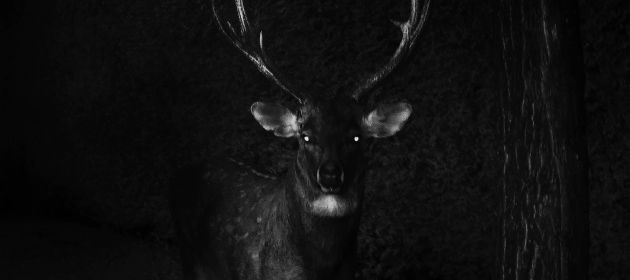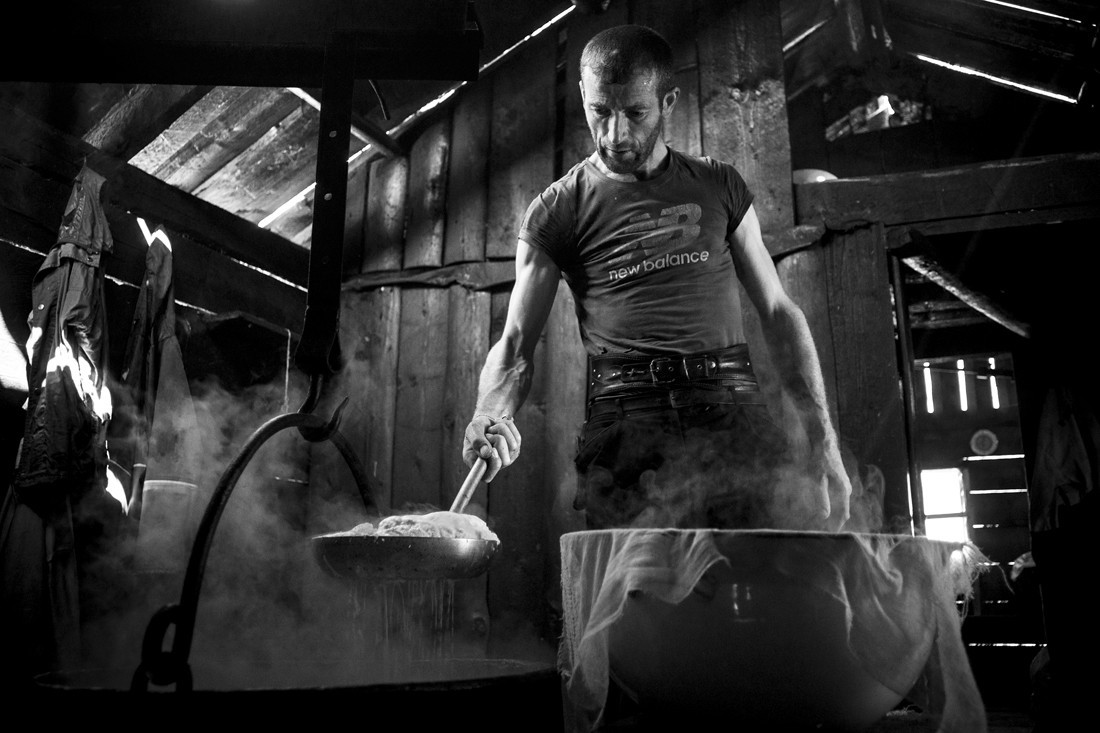
The Life of Carpathian Shepherds in a Series by Ivan Chernichkin

Ukrainian photographer, living in Kiev. Graduated from the Film and Television Institute of the Culture University with a degree in artistic photography. Has worked as a photojournalist since 2004; has been published in The New York Times, The Daily Telegraph, Frankfurter Allgemeine Zeitung, Vogue, Russkij Reportyor, Ogonyok, and Vokrug Sveta.
Blue sky, green grass and fresh mountain air. A shepherd sleeps in the shade of a hundred-year-old tree, surrounded by grazing sheep, and every day from May to October is just like this one. It’s more idyllic than it is strenuous. This is what the majority of Ukrainians think about when they imagine themselves being a Carpathian shepherd. Only a handful, however, realize that it is, in fact, hellish work. Even miners have normally structured working days and two days off a week.
The shepherd image has been idealized in stories, songs, films and cartoons. Also, the opportunity to get out of the house and away from a meddling wife, naughty children and a wicked mother-in-law for half of the year makes the work of a shepherd ideal for the majority of men.
In addition to that, you also need to factor in the harsh conditions of the environment, the absence of any and all modern conveniences and the material responsibility for each cow, sheep and horse. Thus, after all of that you probably don’t want to be a shepherd anymore, just like the majority of the Carpathian youth.
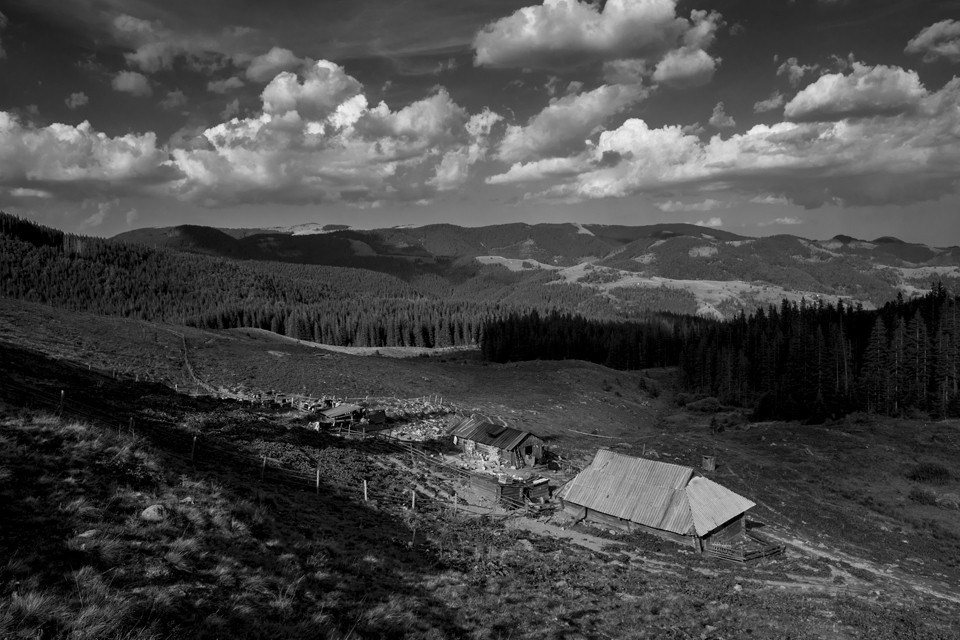

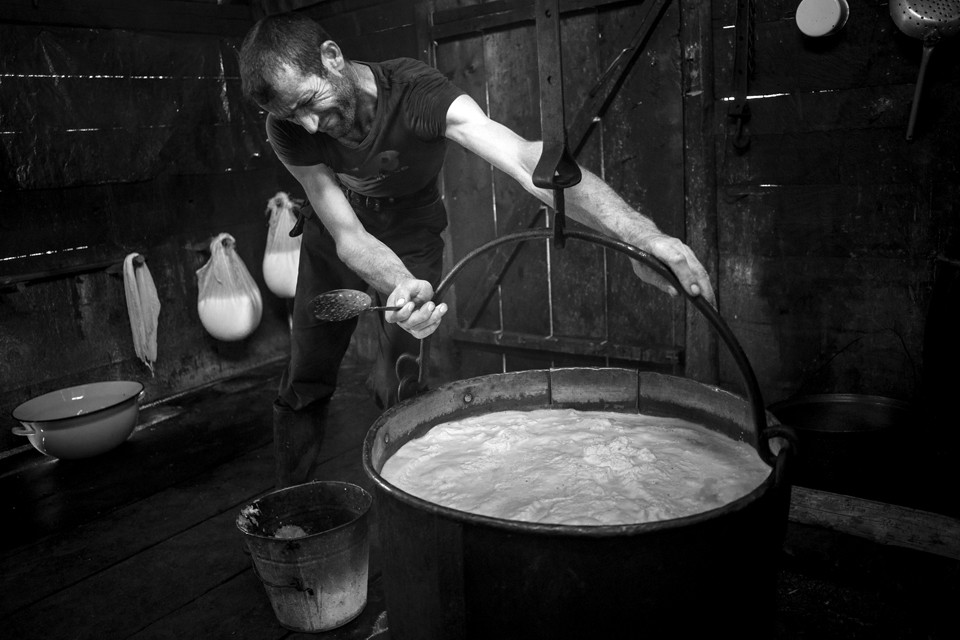
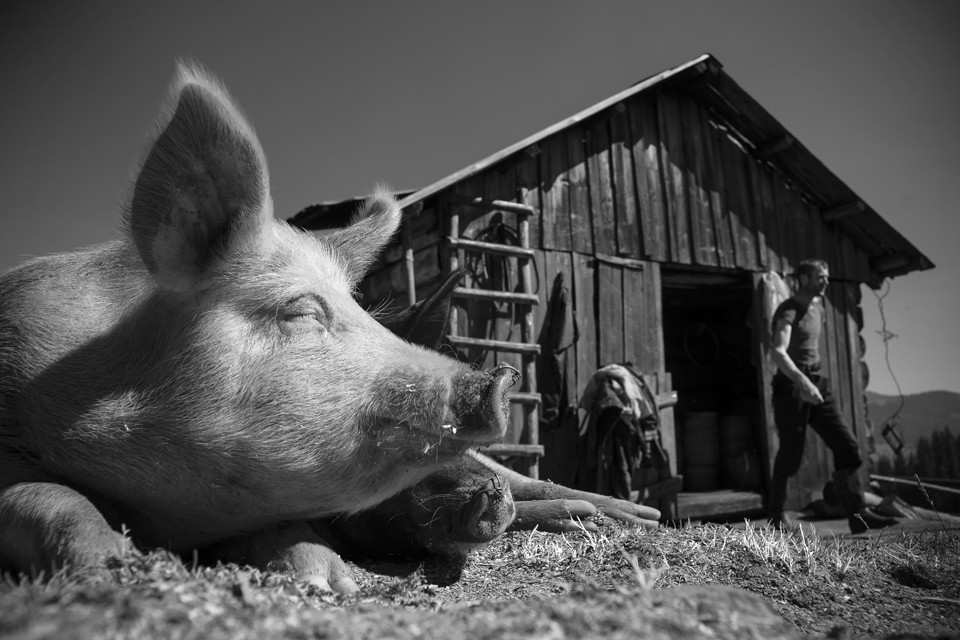
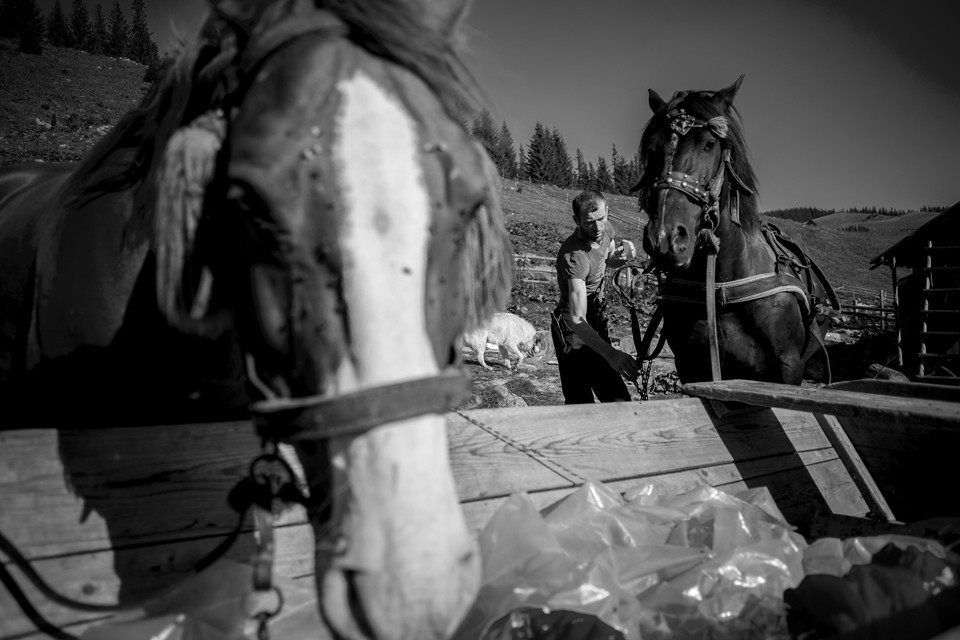
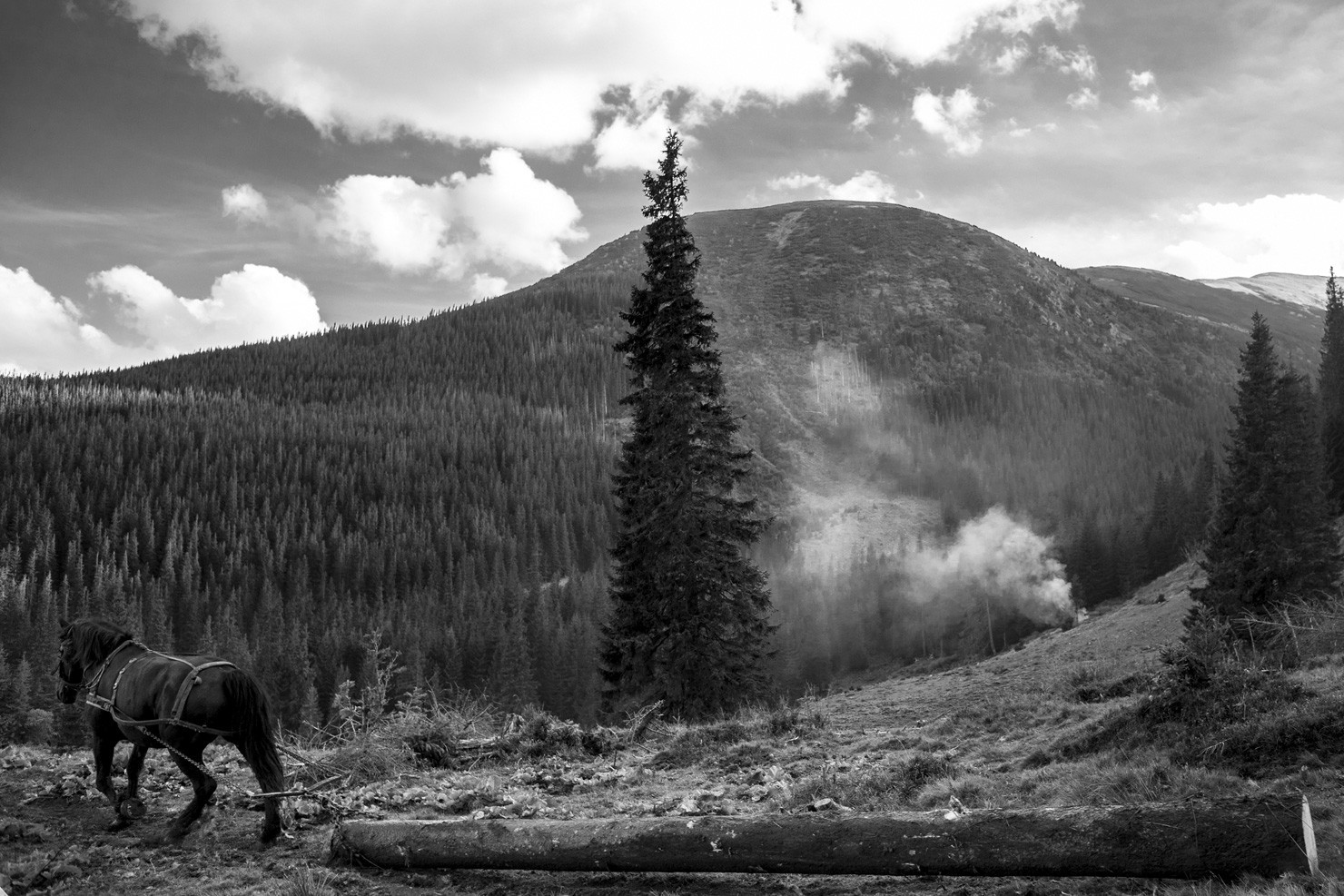
In the Gadzhin Valley, six people take care of 200 sheep, 60 cows and 10 horses for the entire summer. Volodka is the youngest of them, age 23, and Moryak (or just “Grandpa”) is the oldest at age 70. There are also three Ivans and a Nikolay, all around age 40.
Throughout the season these six charismatic, hardy men boil more than 10 tons of cheese, 60 kilograms a day. This is, of course, well-known by everyone as Carpathian feta cheese, but also the lesser known Woerden, the so called Carpathian ricotta - boiled cheese from whey and sheep’s milk.
Aside from cheese, shepherds collect blueberries, cranberries, mushrooms, Icelandic moss and golden root in the highlands. The collection and sale of berries, dried mushrooms and medicinal herbs brings extra income for each of them. However, in this area it’s every man for himself, as opposed to the boiling of cheese and taking care of the cattle.

